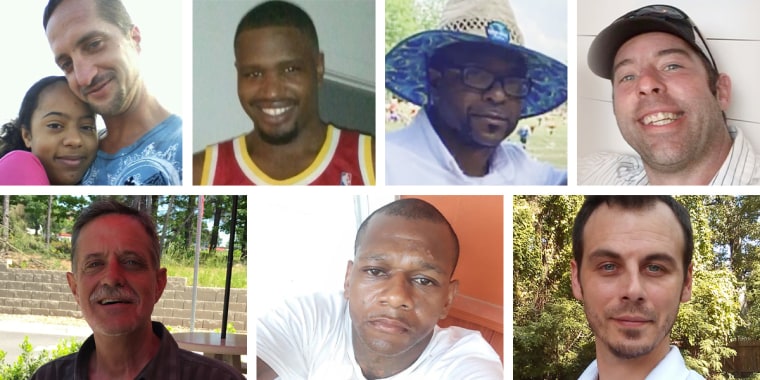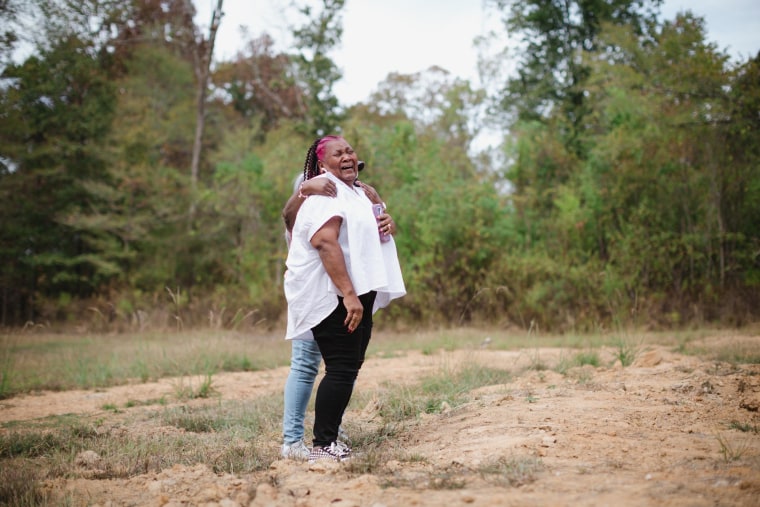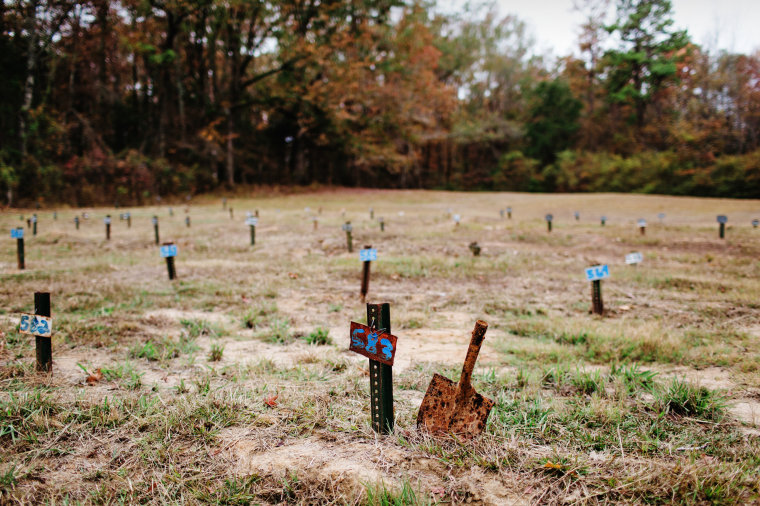This article is part of “Lost Rites,” a series on America’s failed death notification system.
The Justice Department said Thursday it would help authorities in Mississippi improve their death notification procedures, an attempt to correct systemic failures uncovered by NBC News that resulted in people being buried in a pauper’s field without their families knowing.
“Families want and deserve transparency and the opportunity to make decisions about their loved ones’ burials,” Assistant Attorney General Kristen Clarke, who leads the Justice Department’s civil rights division, said in a statement. “Through technical assistance, we aim to ensure that officials are able to deliver death notifications and make decisions regarding burials in a timely and trauma-informed way that complies with federal civil rights law.”
The Justice Department said it will focus on helping the Jackson Police Department and Hinds County coroner’s office.
The move is a response to NBC News’ reporting on the failed notifications, which began last year with the story of Dexter Wade, who was struck and killed by an off-duty police officer in Jackson without anyone telling his mother, even after she reported him missing. After his body went unclaimed for months, the Hinds County coroner’s office had Wade buried in a pauper’s field on the grounds of the county jail work farm, his grave marked only by a number. Wade’s mother, Bettersten Wade, didn’t find out until August, five months after her son’s death.
Wade’s story triggered calls from civil rights lawyers and Rep. Bennie Thompson, D-Miss., for a federal investigation.
Over the next several months, NBC News uncovered cases of six other men, many of them homeless, mentally ill or addicted to drugs, who had been buried in the pauper’s field while their families looked for them. In two cases, an NBC News reporter notified families of their loved ones’ deaths. Two families spotted their loved one’s name on a list of unclaimed bodies published by NBC News.
With each case came more evidence of systemic breakdowns. The Hinds County coroner’s office and Jackson Police Department repeatedly failed to search law enforcement databases or the internet for missing person reports that would have revealed families searching for their loved ones. In some cases, authorities stopped trying to notify next of kin after an unanswered door-knock or dialing a nonworking phone number. Grieving families said the failures reflect a disregard for people who struggle with mental illness, homelessness and addiction. Families have said that after learning about a loved one’s death, they’ve had to make repeated calls to the coroner’s office before getting a response. They also complained of getting contradictory explanations from the coroner’s office and police.
With each new revelation came repeated calls for change.

Jackson Police Chief Joseph Wade responded in November, saying he had adopted the department’s first policy covering death notifications. In January, the Hinds County Board of Supervisors adopted a policy that will require the coroner’s office to check missing person registries before requesting a burial, officials said. But the county has yet to release a copy of that policy.Jackson Mayor Chokwe Antar Lumumba said in a statement Thursday that the city “has been working closely” with federal authorities on the death notification issue. “This joint effort with the DOJ is welcomed and will only improve the new standards already in place,” Lumumba said. “This assistance will only help to better serve the residents of our city.”
Hinds County Coroner Sharon Grisham-Stewart — who in February told an angry mother, “I don’t know how to find people” — did not immediately respond to a request for comment.
The Justice Department said it would provide technical assistance pursuant to the federal Civil Rights Act of 1964, which prohibits discrimination based on race, color and national origin in programs receiving federal financial assistance. The department noted that “some reports have indicated that there may be a perception that race or other factors played a role in the process concerning next-of-kin death notifications.”
In the seven cases of failed notifications reported by NBC News, three of the dead men were Black, while four were white.
The Justice Department said the technical assistance is not a finding of fault or wrongdoing by the police or coroner’s office. Those agencies “voluntarily agreed to receive technical assistance and support,” the department said in a news release.
The technical assistance will be provided by the civil rights division and the U.S. Attorney’s Office for the Southern District of Mississippi. The offices will examine the Jackson Police Department’s policies on missing people and death notifications and make recommendations on training. The Hinds County coroner’s office will receive recommendations on policies and training related to locating next of kin, the DOJ said.

Bettersten Wade, Dexter Wade’s mother, said she was glad that the Justice Department was stepping in.“It makes me feel better that someone is coming in and at least acknowledging that something was done wrong,” she said. “I hope no one else has to go through what I went through.”

